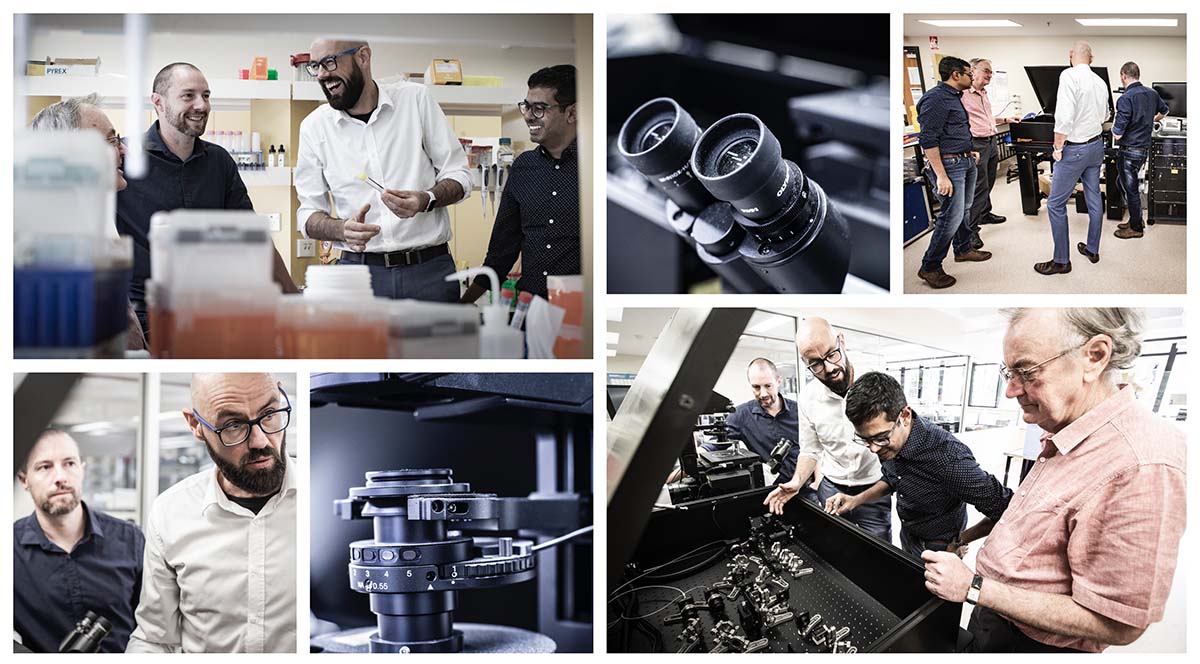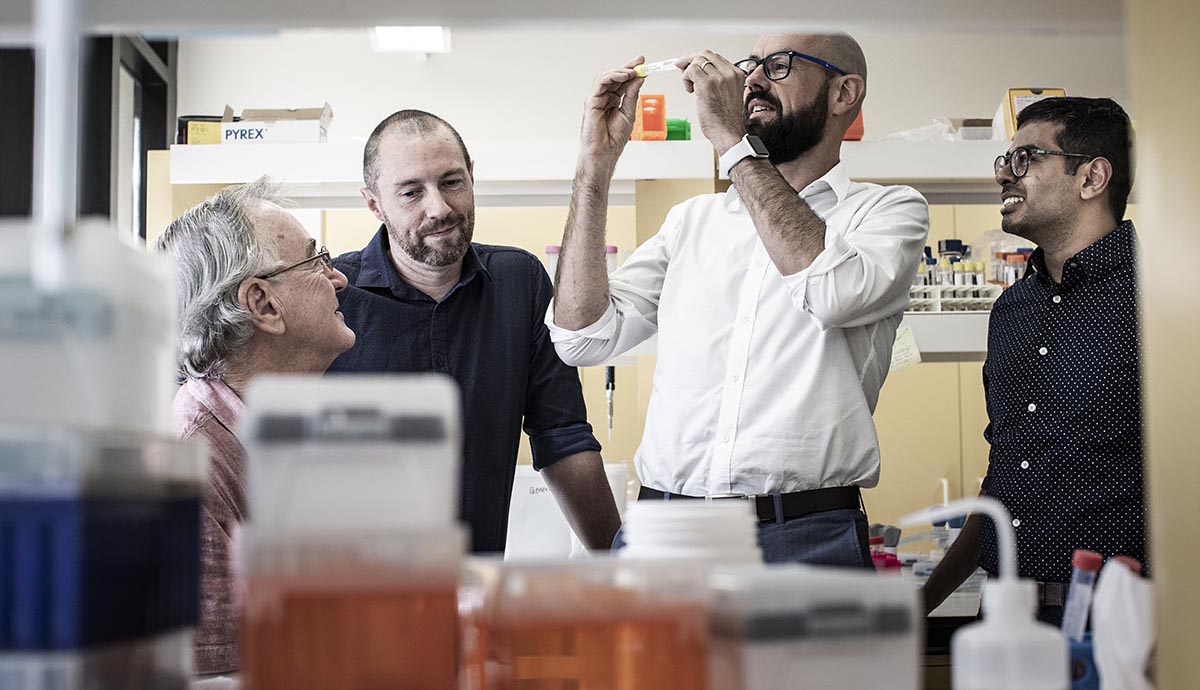April 30, 2019
Study into how superbugs evolve wins $1.5M funding
U.S. National Institutes of Health funds research to investigate how bacteria copy and repair DNA
Researchers from the University of Wollongong’s (UOW) Molecular Horizons institute have been awarded AUS$1.5 million by the United States National Institutes of Health (NIH) for their part in a project to better understand antimicrobial resistance and how superbugs evolve.
The five-year study, a collaboration with researchers from the University of Wisconsin and the University of Southern California, will investigate how bacteria copy and repair their DNA at the level of single cells.
The Molecular Horizons team, headed by Distinguished Professor Antoine van Oijen, leads the world in the development and use of high-power microscopes to study disease-related processes at the single-cell level and even single molecules.
The Molecular Horizons part of the project involves single-molecule visualisation of DNA replication, the process by which bacteria copy their DNA just before they divide, and which bacteria use to repair DNA damaged by external factors such as antibiotic drugs.
The investigation of these processes will not only provide us knowledge on how bacteria deal with damaged DNA, but also reveal how these processes might work in humans and help us further understand the causes of ageing and the development of tumours.
“This project is a great example of how key expertise and infrastructure is critical in the life sciences and how UOW’s commitment to Molecular Horizons is creating opportunities for us to be involved in cutting-edge work at the global scale,” Professor van Oijen said.
The van Oijen group is currently the only research team worldwide with the equipment and expertise to perform single-molecule experiments on the protein complexes that copy DNA and to visualise the dynamics of individual replication and repair proteins inside living cells.
The study will utilise key Molecular Horizons infrastructure, including high-end single-molecule optical microscopes that van Oijen and his team have built, and the recently installed Titan Krios cryo-electron microscope.
“Seeing is believing, so being able to see how proteins inside bacterial cells interact and work together in their ability to repair and copy DNA is an amazingly powerful way of understanding how they function and how we might interfere with them to cure disease,” Professor van Oijen said.
An important goal of the project is to understand how bacteria deal with DNA that is temporarily not in the form of the double-stranded helix, but locally only has a single strand.
This single-stranded DNA is a form that appears briefly when the DNA is copied or repaired and is much more sensitive to mutations being introduced, said Dr Andrew Robinson, another member of the Molecular Horizons team.
“When the bacteria convert single-stranded DNA back into double-stranded DNA there is increased risk of mutations creeping into the DNA. Those mutations could lead to resistance against antibiotics, so it’s important to understand how bacteria deal with those single-stranded gaps,” Dr Robinson said.

As Director of Molecular Horizons Professor van Oijen will bring together more than 40 research groups with expertise in biochemistry, genetics, molecular biology, biophysics and medicine who share an interest in molecular structure and function.
The US research partners at the University of Wisconsin and the University of Southern California have been collaborating with the UOW team for a number of years.
“As an international team, we have already published high-impact journal papers, presented at key international conferences, and supported a large number of research visits by students and researchers between our partner laboratories,” Professor van Oijen said.
“The next five years will see us strengthen those relationships by building our biomedical knowledge in this important area and provide training opportunities for US-based students and post-doctoral researchers, specifically training in the single-molecule approach we are using here at UOW.”
The UOW team involved in the successful grant are Professor van Oijen, Distinguished Professor Nicholas Dixon, Dr Robinson and Dr Harshad Ghodke.
